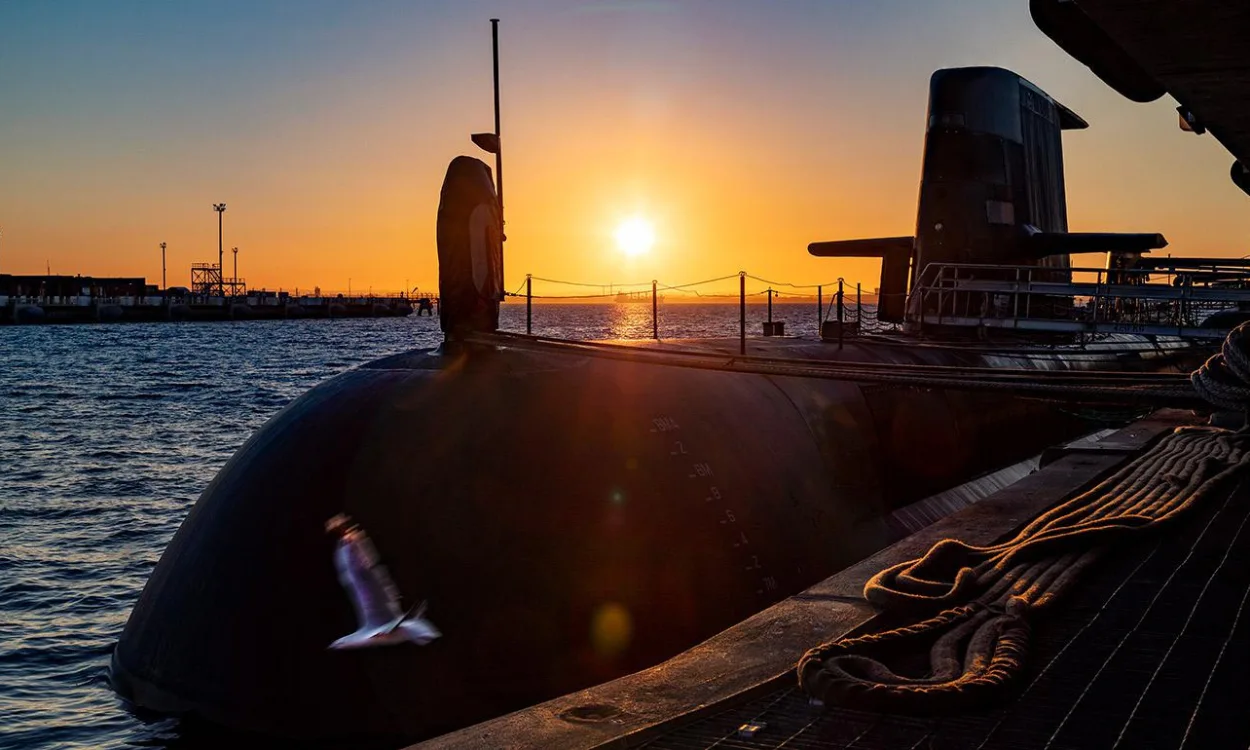The U.S. Navy is pushing forward with integrating its industrial base with Australia and the United Kingdom as part of the AUKUS pact, which aims to establish a trilateral submarine-building collaboration. Although several legislative approvals are pending in Congress, efforts to align production capacities are already underway.
Under AUKUS, the United States will sell submarines to Australia while also developing a new AUKUS-class submarine design. However, U.S. Navy Under Secretary Erik Raven recently clarified that the pact extends beyond procurement. “AUKUS is about fundamentally changing and integrating three industrial bases across different regions to maximize national security benefits,” he emphasized.
Rear Admiral Scott Pappano, overseeing strategic submarine programs, highlighted existing collaboration between the U.S. Columbia-class and the U.K.’s Dreadnought ballistic missile submarine initiatives. A key area of cooperation includes joint efforts in casting metal components for missile tubes, a critical but challenging sector within the U.S. submarine industrial base. Pappano noted that bolstering this sector requires investments in vendor capabilities and exploring advanced techniques like additive manufacturing.
Australian innovation also plays a role in the AUKUS integration. Matt Sermon, executive director of the U.S. Navy’s strategic submarines office, announced that Australian firm AML3D is contributing to research efforts at the Additive Manufacturing Center of Excellence in Virginia. AML3D’s technology could help the Navy advance its expertise in directed-energy deposition, a 3D printing technique, and use of a nickel-aluminum bronze alloy for submarine parts.
Educational exchange has also expanded under AUKUS, with Australian students trained in defense manufacturing skills in the U.S. These students will bring expertise back to Australia, where they will establish training programs aimed at developing a robust submarine workforce to support AUKUS production goals.
U.S. Navy Secretary Carlos Del Toro affirmed AUKUS’s long-term importance, noting that these collaborations are essential for national security and the sustainability of the submarine industrial base. He praised the potential of workforce exchanges, allowing skilled Australian workers to contribute within U.S. companies and eventually transfer their knowledge to Australian facilities.
Additionally, the U.S. is enhancing its security measures for this partnership. The Naval Criminal Investigative Service (NCIS) is establishing a presence in Australia to handle security and counterintelligence for the shared submarine initiatives. This collaboration ensures that workforce and technology standards remain consistent across the U.S. and U.K. shipyards as the allies undertake this unprecedented integration


























